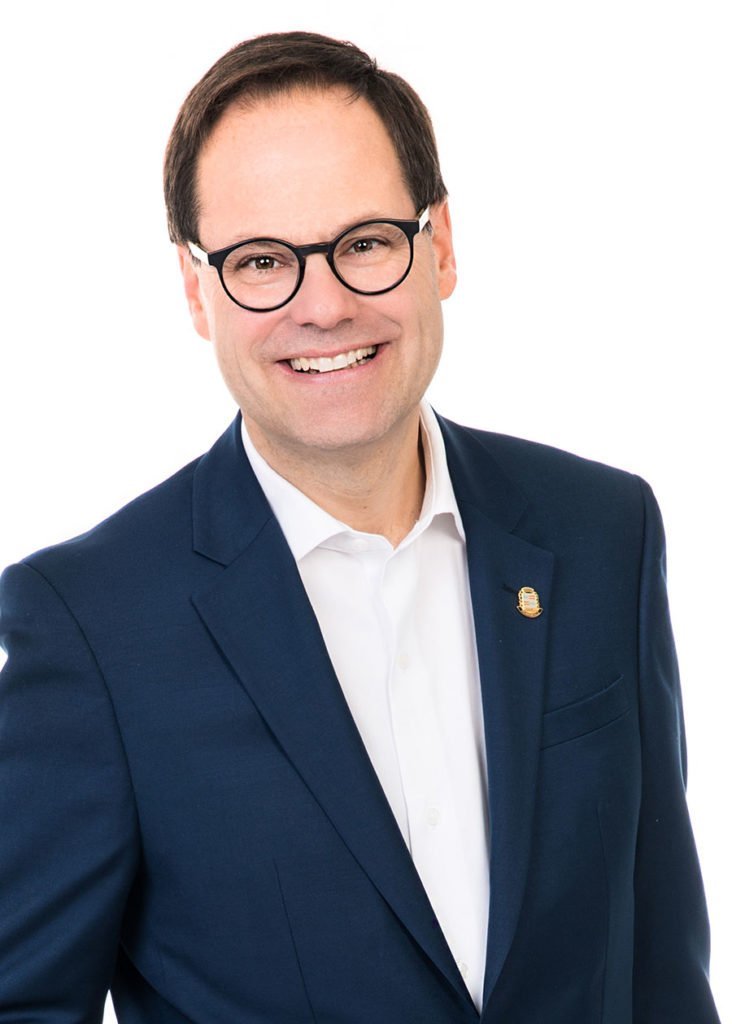
Martin C. Barry
With the new year now underway, the Union of Quebec Municipalities is hoping to negotiate a new agreement with the newly-elected Coalition Avenir Québec government, while reaching a better understanding with Quebec on the role of municipalities in welcoming refugees and immigrants, says UMQ president Alexandre Cusson.
Agreement expiring
“Our fiscal agreement with Quebec is expiring on Dec. 31, 2019,” Cusson, who is also mayor of the City of Drummondville, said in an interview with Newsfirst Multimedia.
According to Cusson, the province’s municipalities want a new agreement to be reached by next September at the latest so as to be able to calculate their 2020 budgets which normally are tabled by municipal councils in December.
Improvements sought
With a new government in place, and the Ministry of Municipal Affairs being led by CAQ MNA for Chicoutimi Andrée Laforest, Cusson is optimistic Premier François Legault will follow through on commitments made during last year’s election campaign to improve conditions for the province’s municipalities.
“The CAQ made commitments during the electoral campaign, among other things for the transfer of one point from the TVQ towards the municipalities,” Cusson said. “At the start this is something that’s on the table. It’s also something that the UMQ has been asking for nearly 20 years now.
Meeting key people
“We’ve already had several meetings with Premier Legault, as well as meetings with several ministers since they took office,” Cusson added. “And so, without being in negotiations formally speaking, we are nonetheless setting the table for what is to come.
“We have been meeting key people. We have been getting the message out about important municipal issues. We have been deciding what topics should be prioritized in the coming years. And the feedback we are getting is very positive and leading us to feel optimistic.”
The 1% transfer
According to Cusson, obtaining the 1 per cent TVQ transfer would make fiscal management more efficient for the province’s municipalities. “It would allow towns and cities to benefit from the province’s economic growth,” he said, noting that currently the municipalities depend primarily on revenues from residential and commercial property taxes to pay for operations and infrastructure.
“There are limits to how much we can do. We are among the municipalities in Canada where revenue is mostly linked to property tax. Up to 70 per cent, when the average is around 40 to 45 per cent.” Cusson said he is confident Premier Legault will live up to his pledges and take measures to ease the burden for Quebec’s municipalities.
Legault’s commitment
“He made the commitment to transfer to us 1 per cent of the TVQ,” he said, noting that Legault repeated the commitment as recently as the UMQ’s annual general meeting in Gatineau last September. “And he as well as several of his ministers recalled the commitment since the elections. For us, the principle has been accepted and agreed on. Now what’s left is to determine how it is going to happen – when and how the sums are going to be shared between the municipalities.”
On another issue potentially affecting the province’s municipalities, Cusson acknowledged that the UMQ could also be seeking additional support from the Quebec government to assist with the increasing numbers of immigrants and refugees who are arriving and settling in Quebec’s towns and cities.
Immigrants and refugees
“Effectively the towns and cities are working very hard at the level of immigration,” he said, adding that rising immigration is helping to resolve the province’s ongoing labour shortage. “What we have noticed over the past few years is that the support in terms of quality resources for when these people first arrive was lacking.”
While pointing out that the UMQ always resisted becoming involved in the debate over acceptable numbers of refugees and immigrants entering Quebec, Cusson continued:
“When Mr. Legault has said that we must do better with those we are taking in, we hear this is with great satisfaction. “We should emphasize this in all regions throughout Quebec. In 2019 this will be an important issue and we will be speaking about this with the government.”



